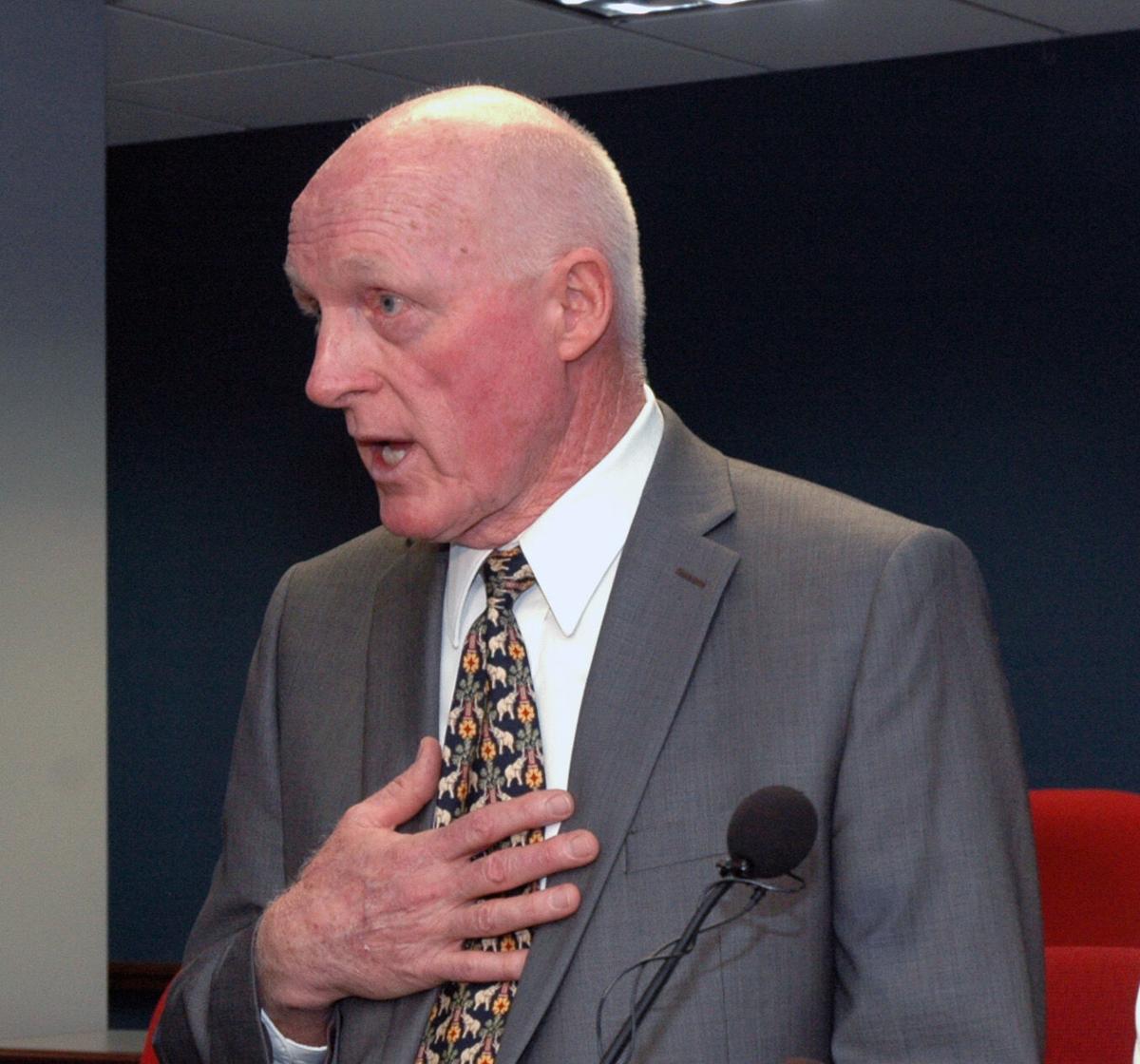PHOENIX — House GOP leaders plan to put their state spending plan and tax-cut package up for a vote Monday.
It’s unlikely, though, that they currently have the votes — a fact they acknowledge. But the strategy appears to be: Get everyone on record and then figure out where to go from there.
The decision comes more than a week after legislative leaders temporarily sent everyone home, given the lack of progress. Talks continued in the interim, said House Speaker Russell Bowers, R-Mesa.
“We are consistently and diligently trying to make offers and communicate and work it all the way through,” he said.
But at some point, Bowers said, the plan needs to be put up for a vote to see if there are the necessary 31 House Republicans willing to adopt it.
“I’m hoping that it isn’t a ‘Hail Mary,’ he said. “But if it is, it is.”
There’s at least one key House GOP holdout: Rep. David Cook from Globe. He’s not happy with the idea of cutting $1.9 billion in income taxes.
Part of that, Cook said, is he doesn’t believe the state is really rolling in that much cash that it can afford to forgo so much on a permanent basis.
“I am convinced that federal COVID relief money has created a false economy,” he said. “And I believe it’s prudent to take some time to ensure we don’t send the state off of a fiscal cliff.”
Then there’s the issue of what happens to cities. They currently get 15% of state income tax collections. That has gotten the attention of several GOP lawmakers, who are hearing from mayors in their districts about the effects of losing that much cash.
Also, some lawmakers would like to pay down the state’s debt.
At the same time, there are some who think the $12.8 billion in the spending plan is too much.
Rep. Judy Burges, R-Skull Valley, called it “pork-laden.”
“That’s exactly the part that’s difficult,’’ said House Majority Leader Ben Toma, R-Peoria. “How do we balance it out without losing one side or the other?”
Toma said there has been a “good-faith attempt” to put together a plan that manages to hold all 31 House Republicans.
They cannot afford to lose even one as it takes 31 votes in the 60-member chamber to approve anything. And so far the 29 Democrats have seen little in the plan to convince them to lend their support.
Toma said putting it up for a vote becomes a moment of truth for GOP lawmakers: Are they willing to torpedo the entire plan because they didn’t get everything they want?
“If there are members that are holdouts they’re going to have to explain why they’re holdouts on the floor,” he said.
It all comes down to the art of the politically possible.
“Members can go, ‘Well, I didn’t get everything I wanted, I’m still a no,’ or ‘I got almost everything I wanted and I’m kind of OK with this,’” he said. He hopes that, at some point, people realize the package just isn’t going to get any better, Toma said.
“The budget every year, at least for me — and I assume most legislators would probably say the same thing — is always a certain exercise of holding your nose and voting because there’s enough in it that you like that offsets what you don’t like,’’ he said. “This year is no different.’’
Bowers agreed that the best move at this point is just to push ahead.
“Put it on the (voting) board and let us see really where we’re at,’’ he said. Bowers said that identifies who isn’t going to go along, putting the onus on them to bring an offer to leadership.
The problem is not just in the House.
“As of right now we still do not have the needed 16 votes,’’ said Senate President Karen Fann, R-Prescott. “We are still working with the members.’’
One of those is Sen. Paul Boyer, R-Peoria. He, like some of his colleagues, worries about the effect on cities of such a huge state income tax.
But Boyer also questions the assumptions built into the idea the state can afford to cut that much permanently in taxes, given not just the artificial infusion of federal pandemic dollars, but also the cyclical nature of the Arizona economy. He is more receptive to a one-time rebate of money to taxpayers.
So far, though, GOP leaders appear unmoved to alter that part of the package.
“At this point, the plan is the plan,’’ said Toma.
He said there will be “some changes’’ to what originally was proposed last month. But the tax package remains unaltered.
The main provision would alter current law, which imposes a 2.59% rate on taxable income of up to $53,000 for married couples, with increasing rates up to 4.5% on amounts above $318,000. That would be replaced by a single 2.5% rate on all taxable income.
Lawmakers cannot repeal the 3.5% tax rate voters approved in November on incomes above $500,000 to help fund education. But the plan calls for blunting the effect by having an absolute 4.5% cap on all income taxes.
Republican Gov. Doug Ducey apparently is holding out hope the plan holds.
“We’re convinced we have a solid budget on the table,’’ said his press aide C.J. Karamargin.
He is defending the governor’s decision more than a week ago to veto 22 bills — most of them sponsored by Republicans — after lawmakers failed to send him a budget plan of his liking.
“If these negotiations result in a budget that we believe is in the best interests of Arizona, you will see what we accomplished,’’ Karamargin said.





